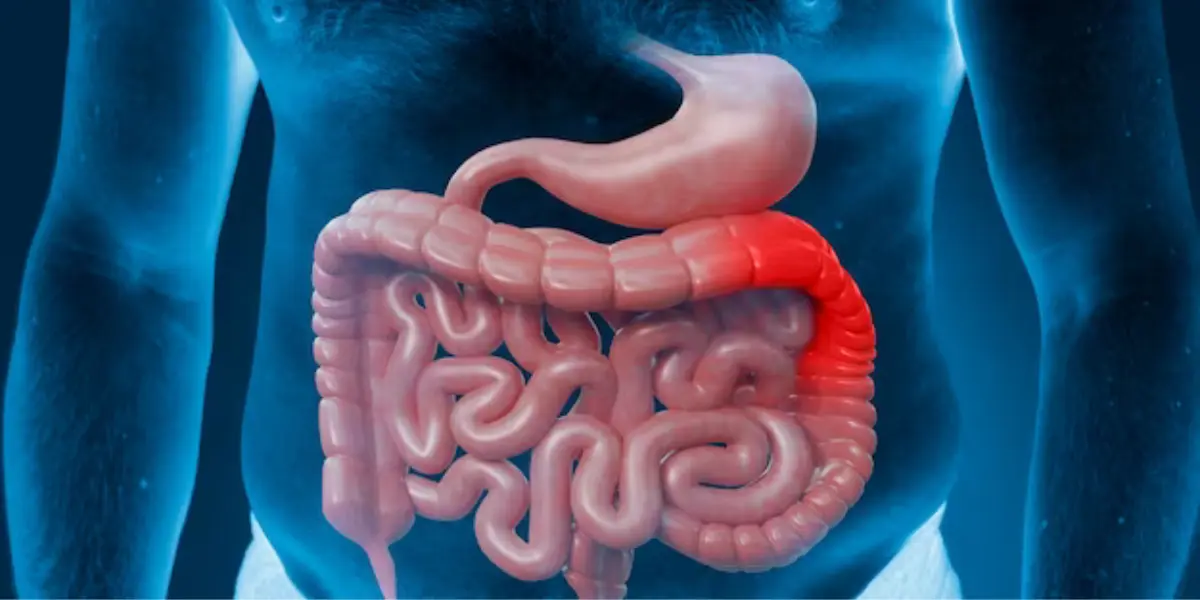Inflammatory Bowel Disease IBD is when parts of the digestive system get inflamed. It contains two conditions: Crohn’s disease and ulcerative colitis. People with IBD often have stomach pain and diarrhea and feel very tired.
IBD is a complex, long-lasting condition, so people with it deal with the problems for an extended period. It can be uncomfortable and affects daily life. The exact cause of IBD is not fully known, but it involves the body’s immune system reacting in the digestive tract. Treatment usually helps manage the symptoms.
What Is Inflammatory Bowel Disease? Most Common Types
Inflammatory bowel disease is an umbrella term for chronic digestive tract inflammation disorders. The two primary types of IBD are Crohn’s Disease and Ulcerative colitis. Crohn’s disease can affect any part of the gastrointestinal tract from mouth to anus, while Ulcerative Colitis is limited to the colon and rectum.
These Conditions are characterized by an abnormal immune response that causes prolonged inflammation, leading to gastroesophageal reflux disease.

How Common Is IBD?
Around three million Americans have IBD, and it can affect people of all ages and genders. It usually starts between ages 15 and 30.
Difference Between Inflammatory Bowel Disease (IBD) And Irritable Bowel Syndrome (IBS)?
IBD is a specific medical condition, while IBS is a collection of symptoms. Their causes and treatments differ. IBS is a gastrointestinal disorder, and it alters bowel movements. It leads to more or less frequent contractions. It is also termed spastic colon or nervous stomach.
Unlike IBD, IBS does not cause inflammation or harm to the intestines. These characteristics make it undetectable through scans and not a risk factor for colon cancer. Hospitalization or surgery is uncommon for IBS.
It is possible to have both IBD and IBS. IBD might trigger IBS-like symptoms, but having IBS does not necessarily mean you will develop IBD.
Symptoms Of IBD
The symptoms of IBD vary depending on the severity and location of the inflammation. Common symptoms include persistent diarrhea, abdominal pain, rectal bleeding, weight loss, and fatigue. Some people who suffer from IBD may also experience fever, reduced appetite, and anemia. The symptoms can range from mild to active illness and remission period.
Causes And Risk Factors Of IBD
The exact cause of IBD is yet not known, but it is believed to result from a complex interplay of genetic, environmental, and immune factors. Genetics particularly plays a significant role. Having a family member with IBD increases the risk.
Environmental factors, such as diet, stress, and exposure to certain medications or infections, are also thought to contribute to the development of `IBD. In addition, imbalances in gut bacteria and an overactive immune system are key contributors.
Diagnosis Of IBD
Diagnosis of IBD involves a combination of tests and medical procedures. These may include blood tests to check for anemia and inflammation, stool tests to detect blood or infection, and endoscopic or sigmoidoscopy to examine the colon visually. Imaging tests such as CT scans or MRIs can also determine the extent of intestinal inflammation.
Types Of IBD: Crohn’s Disease And Ulcerative Colitis
Crohn’s disease and Ulcerative Colitis are the two main forms of IBD, each with unique characteristics. Crohn’s can affect any part of the gastrointestinal tract and often involves deep bowel wall layers. Ulcerative Colitis, in contrast, is limited to the colon and rectum, affecting only the clone’s innermost lining.
Treatment Options Of IBD
Nonsurgical Treatments For IBD
Treatments for IBD differ based on the type and severity of symptoms. Achieving symptom-free remission is often the goal. Common non-surgical medications include:
- Aminosalicylates: These anti-inflammatory drugs, like sulfasalazine and mesalamine, reduce intestinal irritation.
- Antibiotics: Used to treat infections and abscesses.
- Biologics: These target the immune system’s inflammatory signals.
- Corticosteroids: Drugs like prednisone regulate immune response and manage flare-ups.
- Immunomodulators: They moderate an overly reactive immune system.
Over-The-Counter Medication
These medications may also be effective:
- Antidiarrheal medications
- Non-steroidal anti-inflammatory drugs (NSAIDs)
- Probiotics and other supplements
Surgical Intervention For Crohn’s Disease
About 70% of Chron’s patients may require surgery when medications fail. A typical procedure involves:
- Removing diseased bowel sections
- Reconnecting healthy bowel ends (anastomosis)
Post-surgery, the bowel adapts and usually functions. However, 60% may experience a recurrence within a decade, potentially necessitating another surgery.
Surgery For Ulcerative Colitis
One-thrid ulcerative colitis patients may need surgery after 30 years with the disease. Surgical options include:
Colectomy Or Proctocolectomy
- Removing the colon, or both colon and rectum
- Connecting the small intestines to the anus
- Forming an ileal pouch for stool collection, allowing normal passage through the anus
Sometimes, an ileostomy, where a bag outside the belly collects stool, might be necessary. A proctocolectomy is considered curative, though complications like pouchitis can occur.
Living With IBD
Living with IBD can be challenging due to its chronic nature and the fluctuations of symptoms. Patients may need to adjust their diet, manage stress, and adhere to medications. Regular follow-up with the doctor is essential for monitoring the disease and handling the complications.
Complications Of IBD
Individuals with IBD are at an increased risk for colon cancer. They may also face many complications like:
- Anal Fistula: A tunnel connecting an infected anal gland to the anus.
- Anal Stenosis Or Stricture: This is a narrowing of the passage through which stool exits the body.
- Anemia or blood clots due to low red blood cell levels.
- Formation of kidney stones.
- Liver conditions like cirrhosis and primary sclerosing cholangitis
- Problems with nutrient absorption leading to malnutrition.
- Development of osteoporosis.
- Perforation in the large intestine creating a hole or tear.
- Toxic megacolon, characterized by extreme swelling of the intestine.

Future And Research
Ongoing research in IBD is focused on knowing the underlying causes, developing new treatments, and improving the quality of life for patients. Advances in genetics, microbiome studies, and immunotherapy offer hope for better treatments.
The Bottom Line
Finally, Inflammatory Bowel Disease IBD is a complex condition and poses significant challenges to those affected. Understanding its nature, symptoms, and treatment options for effective management is crucial.
As research continues to evolve, there is hope for more advanced treatments and better knowledge of this disease. Ultimately, awareness and education about IBD are vital to improving the lives of those living with this chronic disease.
References:
- American Academy of Family Physicians. Inflammatory Bowel Disease (IBD). (https://familydoctor.org/condition/inflammatory-bowel-disease-ibd/) Accessed 5/03/2021.
- Centers for Disease Control and Prevention. What Is Inflammatory Bowel Disease (IBD)? (https://www.cdc.gov/ibd/what-is-IBD.htm) Accessed 5/03/2021.
- Crohn’s and Colitis Foundation. The Facts About Inflammatory Bowel Diseases (https://www.crohnscolitisfoundation.org/sites/default/files/2019-02/Updated%20IBD%20Factbook.pdf). Accessed 5/03/2021.